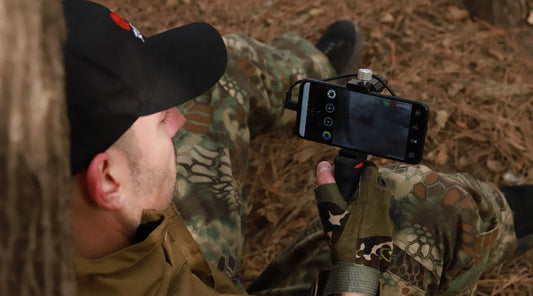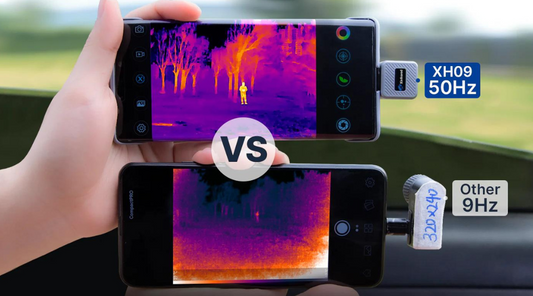How Thermal Cameras Help Night Hunting
Night hunting presents unique challenges to hunters, from limited visibility to navigating through dense foliage. However, advancements in technology have provided a game-changing solution: thermal cameras. In this article, we delve into the role of thermal cameras in night hunting, exploring their benefits, practical applications, and ethical considerations.
Understanding Thermal Imaging Camera:
Thermal imaging technology operates by detecting heat signatures emitted by objects, allowing hunters to visualize their surroundings even in complete darkness. Unlike traditional night vision devices, thermal cameras do not rely on ambient light, providing enhanced visibility in various environments.
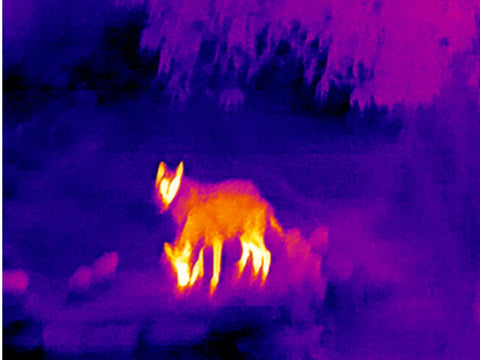
Advantages of Thermal Cameras in Night Hunting:
A. Enhanced Visibility
Thermal cameras excel in low light conditions, offering hunters clear images regardless of darkness. This enhanced visibility enables hunters to spot game animals from greater distances, giving them a significant advantage during night hunts.
B. Target Detection in Challenging Environments
Whether it's dense foliage, thick fog, or adverse weather conditions, thermal cameras can penetrate obstacles to detect heat signatures. This capability allows hunters to track elusive game animals even in the most challenging environments.
C. Real-Time Tracking
Thermal cameras provide real-time tracking of moving targets, enabling hunters to anticipate the movements of game animals and plan their approach accordingly. This feature enhances the efficiency and success rate of night hunts.
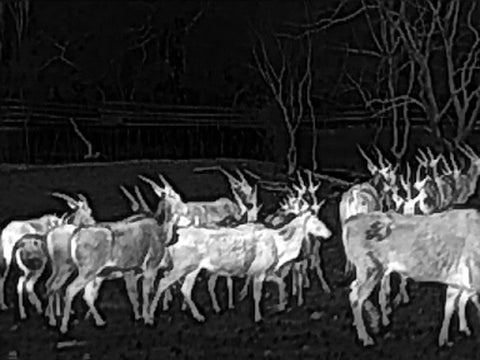
Types of Thermal Cameras for Night Hunting:
A. Handheld Thermal Cameras
Compact and portable, handheld thermal cameras are ideal for scouting and spotting game animals during night hunts. Their versatility makes them a valuable tool for hunters seeking to enhance their night hunting experience.
B. Weapon-Mounted Thermal Scopes
Mounted directly onto firearms, weapon-mounted thermal scopes provide hunters with precise targeting capabilities in low light conditions. These scopes offer a clear view of the target, ensuring accuracy and safety during night hunts.
C. Drone-Mounted Thermal Cameras
Drones equipped with thermal cameras offer a unique perspective to hunters, allowing them to survey large areas and track game animals from above. This aerial view enhances situational awareness and maximizes the effectiveness of night hunts.
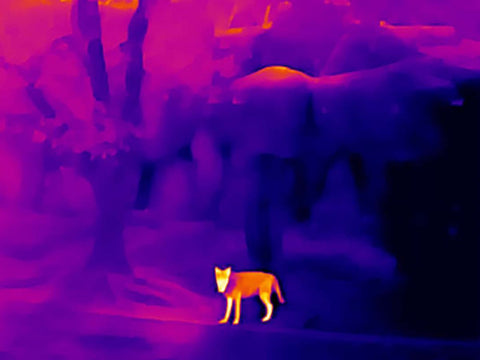
Practical Applications and Techniques of Thermal Cameras:
Effective use of thermal cameras requires strategic planning and technique. Hunters should:
- Familiarize themselves with the operation of thermal cameras before heading into the field.
- Use terrain features to their advantage, such as using thermal shadows to conceal their presence.
- Employ patience and stealth when tracking game animals, as thermal cameras can detect subtle movements.
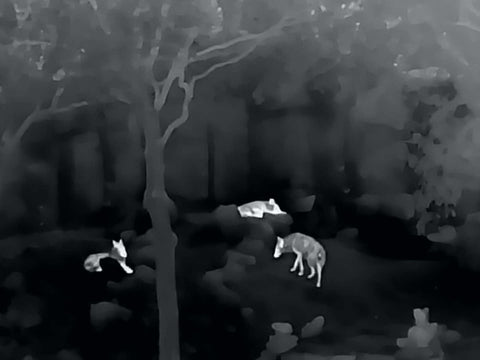
Legal and Ethical Considerations:
While thermal cameras offer undeniable benefits to hunters, it's essential to consider the legal and ethical implications:
- Ensure compliance with hunting regulations and laws regarding the use of thermal technology.
- Practice responsible hunting ethics, including proper shot placement and respect for wildlife.
- Use thermal cameras as a tool for conservation efforts, promoting sustainable hunting practices.
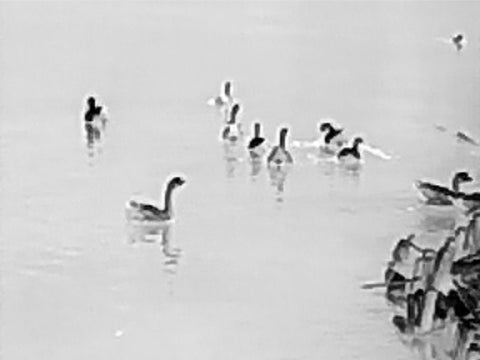
Maintenance and Care of Thermal Cameras:
To ensure optimal performance and longevity of thermal cameras, hunters should:
- Store cameras in a cool, dry place when not in use to prevent damage.
- Clean lenses regularly to remove dirt and debris that may affect image quality.
- Schedule regular calibration and firmware updates to maintain accuracy and functionality.
Thermal cameras have revolutionized the world of night hunting, providing hunters with unprecedented visibility and tracking capabilities. By leveraging thermal technology responsibly and ethically, hunters can enhance their night hunting experience while contributing to wildlife conservation efforts.



